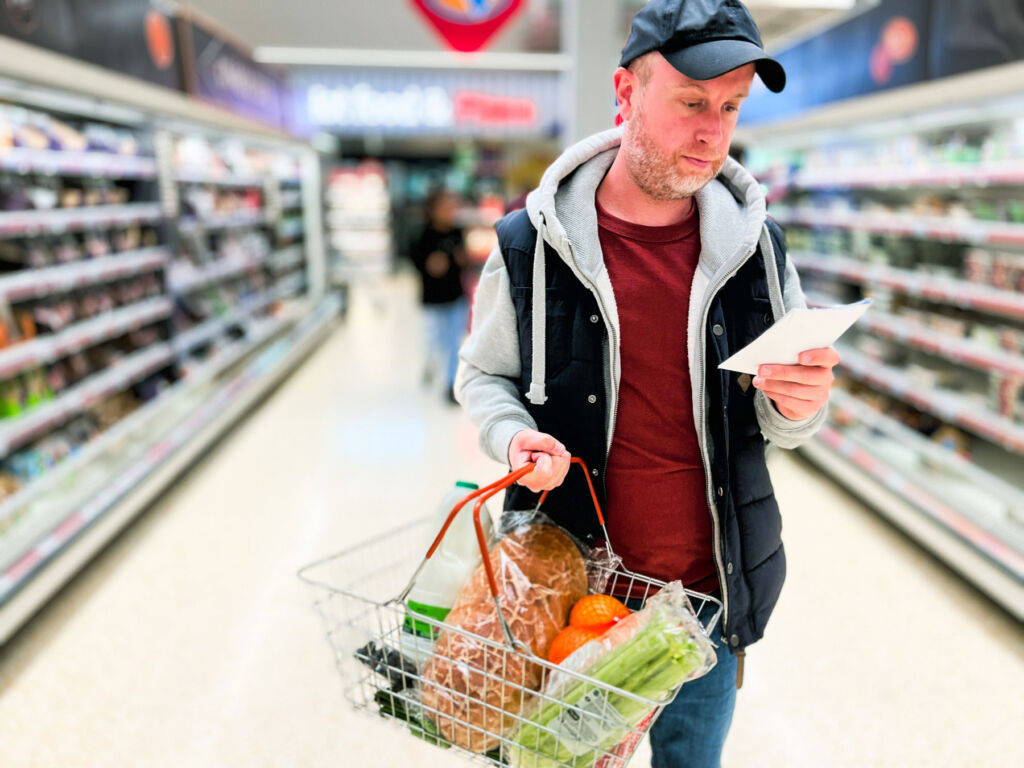
Although government departments, civil servants, and some media outlets will claim that the rise in the cost of living is ‘under control’ or even in ‘reverse’, the vast majority of the country will view that as a lot of ‘codswallop‘. Up and down the country, people continue to feel the ‘pinch’, and a new report has revealed the impact of rising prices, with as many as four in five now describing themselves as “thrifty.”
Audio PlayerKnowing how to get what you need while spending as little as possible is an essential skill in this day and age, and the good news is that many more are learning how to do it.
People who are careful with money have historically been described as ‘tight’, ‘cheap’, or ‘thrifty’—second-level insults. However, times have changed, and nowadays, being smart with money and being labelled with words such as thrifty should be taken as a compliment.
E.ON Next has recently commissioned some research (conducted in June 2024) aimed at exploring how Brits are making their pennies go further. The research involved 2,000 UK respondents aged 18+.
The results revealed a list of ways clued-up cash-savers are cutting back on their spending, with cooking from scratch (37 per cent), using coupons and discount codes (33 per cent), being smarter with energy use (32 per cent), batch cooking (22 per cent) and even DIY home repairs (21 per cent) all featuring.

In fact, according to energy supplier E.ON Next, 70 per cent of those who took part in the survey regularly find ways to reduce their spending.
The nation is also cutting costs by shopping around for cheaper insurance (29 per cent), eating fewer meals out (30 per cent), and sticking to a meal plan and shopping list (28 per cent).
It’s no surprise that 47 per cent insist they have spent less in the last few years, and three-quarters (76 per cent) say saving money is their top priority this year. In fact, 45 per cent feel more optimistic about their finances this year than last year—so much so that seven in ten (76 per cent) want to prioritise saving over the next 12 months.

Seven in ten (72 per cent) feel more knowledgeable about how to save energy and reduce their bills.
Julian Lennertz, Chief Commercial Officer at E.ON Next, commented, “Our research shows that many people across the UK are now more confident about managing their everyday finances and are making more informed decisions about where to spend money – and where they can save. Our E.ON, Next Pledge tariff, can help customers save money and offer peace of mind, creating real change in the energy world.”
To help further inspire the nation’s thrifty endeavours, E.ON Next has enlisted renowned personal and financial consumer expert Sue Hayward said, “The findings from E.ON Next’s research are truly heartening; they reflect a nation that’s not only keen on keeping a tight rein on their finances but also on finding joy in the process.
“It’s inspiring to see such a large percentage of Britons taking charge of their energy consumption and seeking out tariffs that support their thrifty lifestyle. This proactive approach to saving, particularly in a time of fluctuating energy prices, demonstrates a commendable level of financial savvy and a collective commitment to a more sustainable and cost-effective future.”

Top Ways Thrifty Brits Are Saving Pennies on a Daily Basis…
- Using loyalty cards – 42 percent
- Cooking from scratch at home – 37 per cent
- Turning the thermostat down – 34 per cent
- Only turning on lights when necessary – 34 per cent.
- Using shopping coupons – 33 percent
- Being smarter with energy use – 32 per cent
- Turning off appliances at the plug – 33 per cent
- Ditching takeaways – 31 per cent
- Eating out less – 31 per cent
- Swapping premium brands for supermarket own- 30 per cent
- Shopping around for cheaper insurance – 29 per cent
- Sticking to your meal plan/shopping list – 28 per cent
- Batch cooking – 22 per cent
- Bulk buying food – 23 percent
- Walking instead of driving – 23 per cent
- Unsubscribing from unnecessary apps – 22 per cent
- Buying second-hand (pre-loved) clothes – 22 per cent
- Making a packed lunch for work – 22 per cent
- DIY home repairs – 21 per cent
- Using public transport – 20 per cent
- Cancelling streaming subscriptions – 19 percent
- Eating less meat – 19 per cent
- DIY haircuts – 17 per cent
- Stopping top-up food shops during the week – 13 per cent
- Growing my own fruit and vegetables – 12 per cent
The research referred to above was commissioned by E.ON Next and conducted during June 2024, with 2,000 UK respondents aged 18+.

![]()




You must be logged in to post a comment.